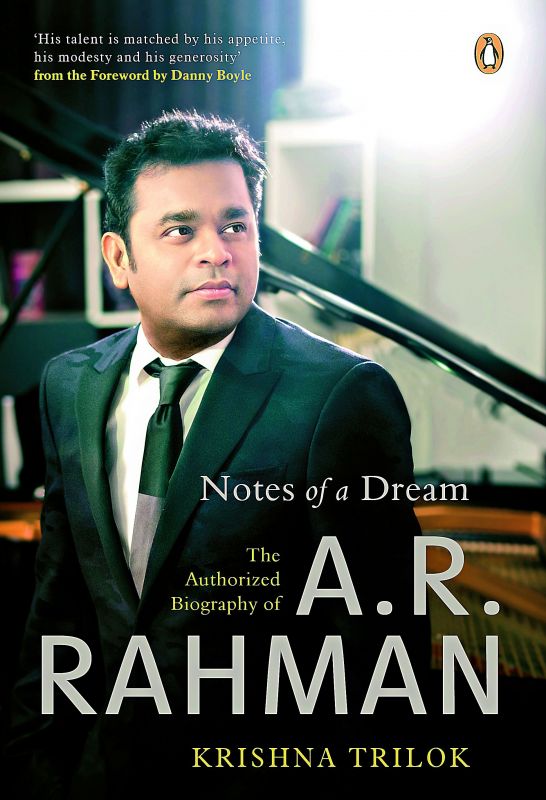Following the maestro
Through his upcoming biography of A.R. Rahman, author Krishna Trilok hopes to help demystify the musician.

Some call him the ‘Mozart of Madras’ while others call him the ‘Beethoven of Bollywood’. A.R. Rahman, who is undoubtedly India’s most famous music composer, is the musical maestro who rules over the hearts of millions across the world. While his songs are all over the public domain, most people don’t know much about this shy musician’s early life and struggles. Revealing all these details and much more is author Krishna Trilok’s Notes of a Dream: The Authorized Biography of A.R. Rahman.
 Notes of a Dream: The Authorized Biography of A.R. Rahman by Krishna Trilok Rs 599, pp 344 Penguin India.
Notes of a Dream: The Authorized Biography of A.R. Rahman by Krishna Trilok Rs 599, pp 344 Penguin India.
So how did this book come about? Krishna answers enthusiastically, “I was always fascinated by Rahman’s journey and the ease with which he moved from one industry to the other. From his early days as a composer of advertisement jingles to his first big break in feature films, from his keenness to integrate new technology with good old-fashioned music scores to the founding of his music school, from his resounding entry onto the international stage to his directorial debut — he is always trying his hand at something new.” Krishna, who feels the musician is brilliant at every task he undertakes, focuses on Rahman’s most radical transformations.
It took Krishna one-and-a-half years to complete the book that not only highlights the musician’s career graphs but also gives a peek into his personal life. Krishna describes the process. “Rahman is an incredibly talented person and yet so humble. I remember when I met him for the first time for the book, in Mumbai, we
didn’t really talk. I spent most of my time observing him and taking notes. We spoke during meals or while he was commuting,” says the author who feels it was an honour to be around the maestro.
“It started out as writing a book but eventually it became a journey of learning many things from this man and the way he thinks,” he adds.
One of the things Krishna noticed about the musician is that he has high expectations for himself. “He keeps trying to better and better in every field, not just professionally. At the same time, he realises that no matter how excellent he is there are some things not within one’s control,” he says.
According to Krishna, every song Rahman makes has its own purpose. What makes Rahman special is that he wants to experiment with genres and puts his heart and soul into every song.
So what was the biggest challenge in writing the book? Pat comes the reply, “It was to contain such a beautiful journey in so many pages.” He elaborates, “A very limited version of the story came up to around 600 pages and then we edited it to 340 pages. I believe every part of his life can be a book by itself. But the fundamental idea was to elaborate on the transformations, so we only retained the vital points.”
Interestingly, the book also features people that have worked with the Oscar-winning music director. “I spoke to his sisters and wife to understand him personally. On the professional front, we spoke to people like Mani Ratnam, with whom he has collaborated many times, and Imtiaz Ali, with whom he shares a very special bond.” But, it’s not all about the celebrities. “I also spoke to the people who work with him but not musically, like his personal assistant and managers. His manager, in fact, helped me understand him a lot. These interactions give the book a different flavour,” Krishna adds.
The whole experience was a surreal one and Krishna was left feeling inspired by the musician. “When I asked him how he maintains to keep his calm and work towards his dreams, he told me, ‘No matter how tough it gets, you just have to believe that it’s for the best. If something doesn’t happen the way you want it to happen, rather than getting angry at the world you need to look at yourself and think of what can you change. And after trying everything, if things still don’t change then accept that you are in the hands of a higher power and it will take care of you’. This conversation changed my perspective and the way I look at the world,” the author concludes.
